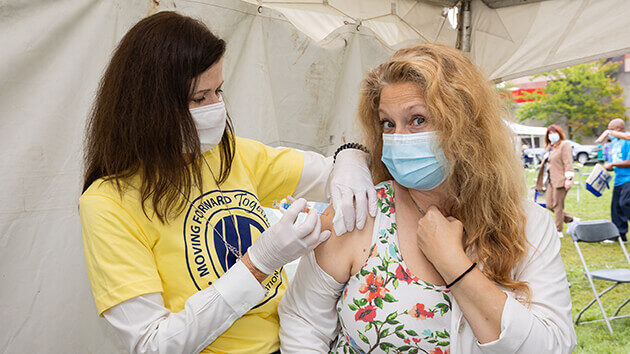Seasons Change, But Need For Flu Shot Doesn’t

As Covid-19 spread across the U.S. in 2020, one noticeable impact was an unusually low number of flu cases across the country, including here in the Capital Region. Statistics show that the number of confirmed flu-related hospitalizations in the U.S. was the lowest it had been for a flu season since those numbers were collected beginning in 2005.
It’s widely believed that Covid-19 mitigation measures – use of face masks, schools moving to virtual learning, reduced travel and physical distancing – played a significant role in minimizing the impacts of the 2020-2021 flu season.
With the beginning of flu season in October comes concern that increased flu activity could be on the way in the coming months. The Centers for Disease Control and Prevention (CDC) say flu season could begin earlier than normal and could possibly be severe.
“Flu vaccine is the number one way to protect yourself from getting the flu and to prevent you passing it on to loved ones and others,” says Rebecca O’Donnell, Albany Med Director of Epidemiology.
Flu shots are recommended for anyone six months and older and are now readily available. O’Donnell says now is the right time to start thinking about getting a flu shot which takes about two weeks to be effective.
“The timing of a flu shot now decreases the risk of the flu spreading to others just as flu season begins and indoor gatherings start taking place around the holiday season,” O’Donnell says.
Flu and Covid-19
Many of the symptoms of the flu and Covid-19 are similar. Knowing your illness and identifying it quickly is important, as is getting vaccinated against both viruses.
O’Donnell says remembering the basics can have a big impact in protecting yourself and those around you from the flu, Covid-19 and any other respiratory illnesses that are prevalent.
“Respiratory etiquette (coughing and sneezing into tissues, then throwing those tissues away), not touching your eyes, nose and mouth with your hands and most importantly hand hygiene are infection control interventions that help prevent the spread of respiratory illnesses such as flu and Covid,” O’Donnell says. She adds that masks also help prevent respiratory illnesses.
If you do feel sick, O’Donnell says the best thing you can do is limit your contact with others.